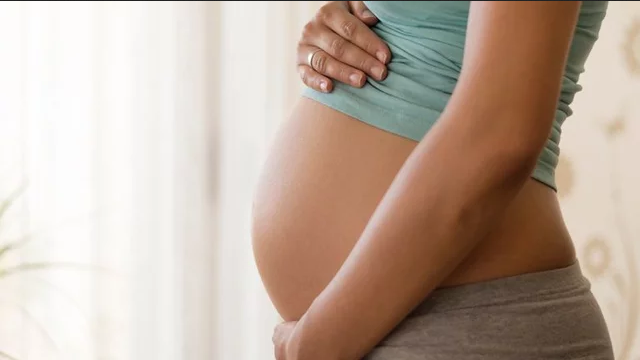
Suicide and substance abuse are leading causes of maternal death in the first year following birth, say doctors, as they urge the NHS to disclose which trusts are following advice to conduct screenings 10 weeks into a pregnancy.
Many pregnant women “suffer in silence for too long” with mental health issues, psychiatrists have warned.
An estimated one in five pregnant women or new mothers develop illnesses such as depression, anxiety, eating disorders, psychosis and post-traumatic stress disorder, according to the Royal College of Psychiatrists.
It’s urging people affected not to be embarrassed and to speak to their GP or midwife.
The college also wants more transparency over mental health screening after it found 20 out of 122 NHS trusts in England were not reporting whether or not they carried it out.
Official guidance recommends all women should be asked about their mental health history – as well as their family’s – and other mental health risk factors at their 10-week check up.
“More than eight years after routine screening was first recommended, we still don’t know if NHS trusts are following the guidelines, and there is strong anecdotal evidence to suggest many women are missing out,” said the college’s Dr Trudi Seneviratne.
“Suicide and substance abuse are leading causes of maternal death in the first year following birth so it’s vital that women experiencing mental illness receive timely specialist support.”
Dr Seneviratne said NHS England must urgently disclose if trusts are carrying out the screenings.
The perinatal psychiatrist said she routinely treated women who develop serious mental illness during pregnancy, or after giving birth, and that many “suffer in silence for too long”.
“They are often embarrassed to ask for help, fearing people will view them as weak or unfit to be a mother,” said Dr Seneviratne.
“Some didn’t realise they were very unwell while others didn’t know how to get help.
“If you experience mental health issues during or following pregnancy, please don’t be embarrassed to ask for help.
“Speak to your GP or your midwife who can offer advice and, if appropriate, refer you to specialist mental health teams.”
A mental health charity also warned last year that pregnant women and new parents were struggling to access mental health support.
The survey found more than one in four felt their concerns were not taken seriously by the NHS, with two in five saying they had to wait too long to receive help.